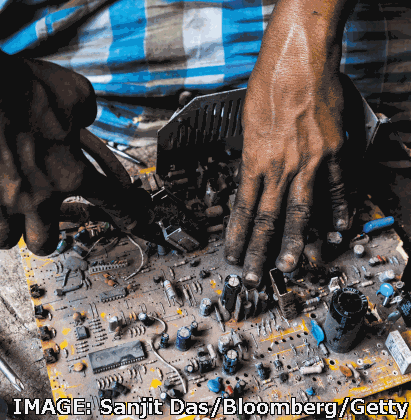E-waste warning in AI explosion
 Generative AI could drive up e-waste by a thousandfold in coming years.
Generative AI could drive up e-waste by a thousandfold in coming years.
Generative AI's rapid growth could create between 1.2 and 5 million tonnes of e-waste between 2020 and 2030, according to new research published in Nature Computational Science.
The study warns that this surge could be nearly 1,000 times current levels of AI-related e-waste, driven by the demand for frequent upgrades to hardware and chip technology that support generative AI's computational needs.
Researchers Peng Wang and colleagues predict that under the most aggressive AI adoption scenario, annual e-waste could reach 2.5 million tonnes by 2030.
Accumulated waste could amount to 5 million tonnes over the decade, with 1.5 million tonnes of printed circuit boards and 0.5 million tonnes of batteries among the discarded materials.
This waste includes toxic substances such as lead and chromium, which pose serious risks to environmental and public health.
The study outlines four different scenarios for AI adoption, ranging from aggressive to conservative.
Even the lowest-growth scenario would contribute significantly to e-waste. To mitigate this impact, the researchers advocate for circular economy strategies, including extending the lifespan of hardware, reusing components, and recycling materials.
The adoption of these measures could reduce e-waste by as much as 86 per cent.
“Without circular strategies, the projected increase in waste is both environmentally and economically unsustainable,” the study states.
The findings suggest that responsible AI development and proactive e-waste management are essential to limit harmful pollution.
Generative AI, while already becoming invaluable for tasks like text and image creation, poses a significant environmental challenge if its infrastructure requirements are not sustainably managed.
The report emphasises that tackling the growing e-waste not only reduces environmental risks but also offers economic opportunities through material recovery, including valuable metals such as gold, silver, and palladium.
The authors call for collaborative action from governments, industries, and researchers to establish sustainable practices within the AI sector.








 Print
Print